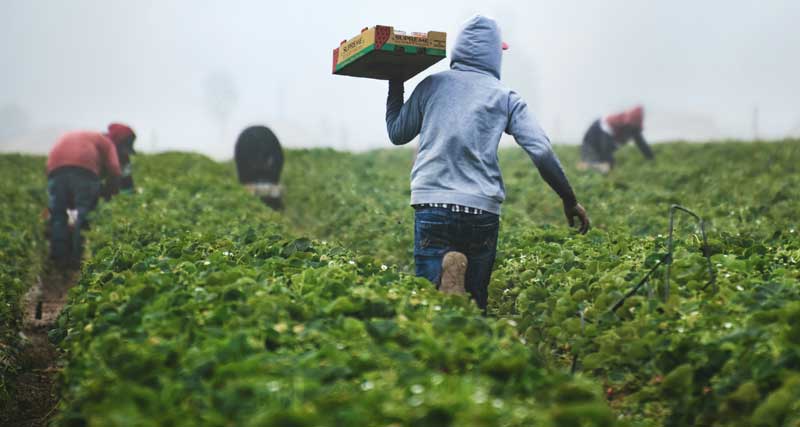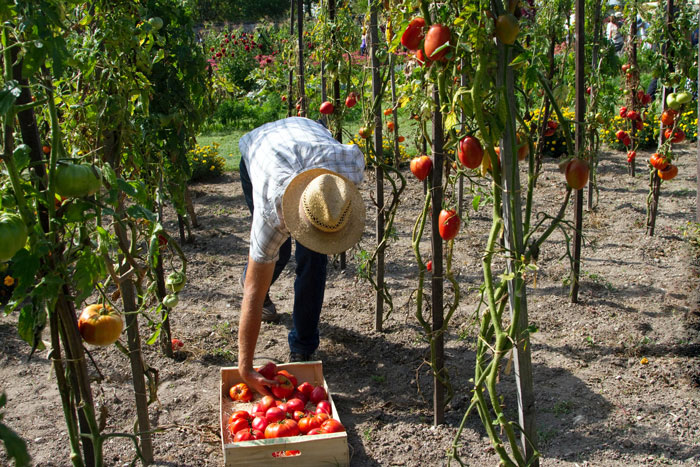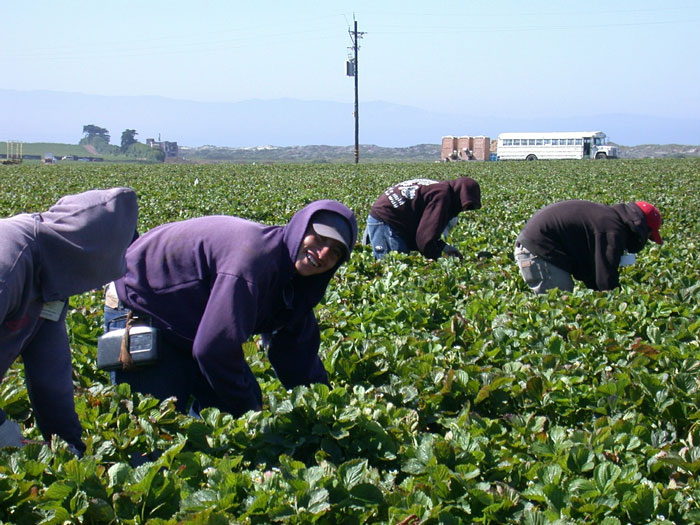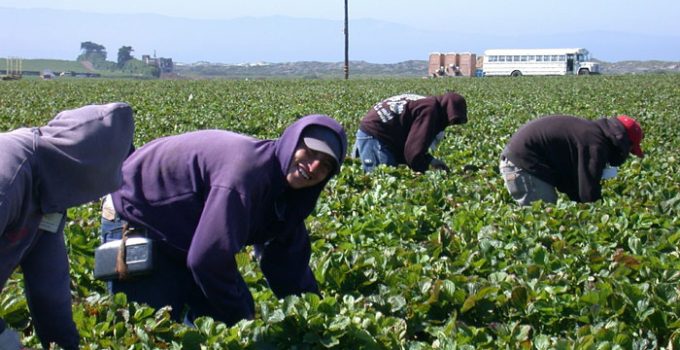The Silent Farm Killers: How Worker Theft, Human Errors, and Machine Faults Steal Your Profits and How to Stop Them
Farming is tough work that requires diligent planning and well-calculated moves. You till the soil, plant with hope, nurture your crops or livestock, and pray for a good harvest.
But sometimes, even when nature is kind, profits still slip away. The culprits? Not droughts or pests this time, but something less obvious, the silent killers of farm profit: worker theft, human errors, and machine faults.
These are problems that don’t make headlines like droughts or locusts, but they quietly drain your pocket season after season.
The good news is that you can fight back. Let’s break down how these silent killers operate and, more importantly, how you can stop them.

-
Worker Theft – The Invisible Leak in Your Harvest
No farmer likes to admit it, but sometimes the people you trust on your farm may be the ones quietly robbing you.
Worker theft doesn’t always come as a dramatic heist it’s often small, steady, and disguised as “nothing serious.”
How Worker Theft Steals Your Profits
- Harvest stealing: Workers harvest a little extra for themselves and sneak it home.
- Input diversion: Bags of feed, fertilizers, or chemicals quietly disappear.
- Time theft: Workers underperform, waste time, or even pretend to be working.
It may look small, but think of it this way: if you lose just 5 bags of maize every season to petty theft, that’s a direct hit to your profits.
Over five years, you’ve lost the equivalent of a small plot’s harvest without even noticing.
Things you can do to stop Worker Theft
- Keep accurate records. Track input distribution, harvest weights, and storage movement. Numbers don’t lie.
- Random spot checks. Visit unannounced, especially during harvest or feeding times.
- Build loyalty. Treat workers fairly, pay on time, and recognise good work. A satisfied worker is less tempted to steal.
- Divide duties. Don’t let one person handle everything. For example, the person who records the harvest shouldn’t also be the one moving produce to storage.
- Use simple tech. Weighing scales, CCTV near storage areas, or even marking sacks can discourage theft.

Related article:
4 Solid Tips on How to Effectively Manage Farmworkers
Wrong Spray, Wrong Timing: Real-Life Lessons from Farmers Who Lost Their Crops to Herbicide Mistakes
Stop Selling Raw Crops! 5 Value-Added Agriculture Ideas That Will Skyrocket Your Farm Income
-
Loses Due to Human Errors – Small Mistakes, Big Losses
Not all losses are from bad intentions. Sometimes, honest mistakes cost just as much as theft. Workers and even farm managers make human mistakes. The problem is when they keep happening.
Common Human Errors That Hurt Farms
- Wrong timing: Planting too late, or harvesting too early.
- Mishandling crops/livestock: Poor feeding, rough handling, or incorrect pesticide use.
- Poor measurement: Over- or under-application of fertiliser and chemicals.
- Neglecting records: Forgetting to note sales, feed usage, or harvest figures.
Imagine spraying pesticide at the wrong concentration, you may damage the entire crop or waste money buying extra chemicals.
Or think of feeding livestock inconsistently; growth slows, and profits shrink.
How to Prevent Costly Mistakes due to Human Errors
- Train your workers. Don’t assume they know everything. Even basic tasks like mixing feed or applying fertiliser need clear instructions.
- Write it down. Post schedules for feeding, spraying, or harvesting so everyone knows the exact timing.
- Use checklists. Just like pilots, farmers need them too. A simple tick-box list before spraying or feeding can avoid costly errors.
- Review performance. Sit with your workers weekly to discuss what went well and where mistakes happened.
- Lead by example. Show them how it’s done properly, especially with new techniques or equipment.
Related article:
Is Your Farm a Target? 6 Powerful Farm Security Tips to Keep Thieves and Intruders Out
Zoonotic Diseases on your Farm: How to Spot, Stop, and Shield Yourself from Animal-Borne Diseases
Chemical Safety for Farmers: Practical Health Measures to Prevent Chemical-Related Illnesses

-
Loses Due to Machine Faults, i.e When Your Tools Turn Against You
Tractors, planters, irrigation pumps, threshers, and incubators machines save time and labour. But they can also silently drain your profits when neglected.
A small fault ignored today may turn into a big breakdown tomorrow, just when you need the machine most.
How Machines Sabotage Your Farm
- Breakdowns during peak season. A faulty harvester or pump can cause delays, leading to crop loss.
- Fuel inefficiency. Poorly serviced engines burn more fuel.
- Excessive wear and tear. Neglecting small repairs shortens machine lifespan.
- Downtime losses. Waiting days for a mechanic during planting or harvest means lost productivity.
A broken irrigation pump during dry spells could cost you half a field of vegetables. That’s not just a repair bill it’s lost sales, wasted inputs, and unpaid debts.
How to Stop Machine Losses
- Regular maintenance. Create a schedule for oiling, cleaning, and servicing. Prevention is cheaper than repair.
- Daily checks. Train workers to inspect machines before and after use. Small leaks, loose bolts, or strange noises shouldn’t be ignored.
- Keep spare parts handy. Belts, filters, and plugs are small investments that prevent long downtimes.
- Hire qualified operators. Machines last longer when used correctly. Don’t let untrained workers “experiment” with them.
- Keep records. Note service dates, fuel consumption, and repairs to track performance.
Related article:
Utilizing Small Space to Make Big Profit, the Hidden Economic Power of Backyard Rabbit Farming
Is Your Farm a Target? 6 Powerful Farm Security Tips to Keep Thieves and Intruders Out
4 Silent Struggles Poultry Farmers Go Through, and How to Overcome Them.
The Real Cost of These Silent Killers
Let’s put things in perspective. Imagine a medium-scale maize farmer producing 200 bags per season:
- The worker theft takes away 10 bags quietly.
- Human errors reduce yields by another 15 bags.
- Machine breakdowns delay harvest, and you lose 5 bags to spoilage.
That’s 30 bags gone, equivalent to a whole extra farm land (an acre of land of maize with good agronomical practices).
At ₦40,000 per bag, you’ve lost ₦1.2 million in one season! Over five years, that’s ₦6 million that could have built a better farmhouse, expanded your land, or educate your children.
Silent killers don’t just take profits; they steal your growth, peace of mind, and future.

Related article:
Getting Started with Goat Farming Business: A Beginner’s Guide for Smallholders
5 Ways You Can Start a Small-Scale Cow Fattening Business Right from Your Backyard
Practical Steps to Protect Your Farm from both human, mechanical errors and theft from farm workers
Stopping these losses doesn’t require magic, just discipline and structure. Here’s a combined action plan you can start today:
- Audit your farm. Take stock of where you may already be losing money: inputs, storage, harvest, or sales.
- Introduce recordkeeping. Even a simple notebook for inputs, yields, and expenses makes theft and errors easier to spot.
- Invest in training. Whether it’s your farm manager or casual workers, teach them the “why” and “how” of tasks.
- Schedule maintenance. Mark your calendar for regular machine servicing; don’t wait for breakdowns.
- Reward honesty and performance. Create incentives for workers who save costs, report issues, are dedicated staff or meet targets.
Final Conclusion
Every farmer dreams of higher yields and bigger profits. But sometimes, it’s not more land or more fertiliser you need, it’s plugging the hidden holes where money leaks out. Worker theft, human errors, and machine faults may be silent, but their impact is loud on your bank account.
The farms that thrive are not always the biggest; they’re the best managed. By putting systems in place to prevent theft, train workers, and care for your machines, you’re not just protecting your present harvest, but also securing your farm’s future.
Remember, farming is not only about growing crops and livestock, it’s about growing profits too. Don’t let the silent killers steal your hard-earned success.







